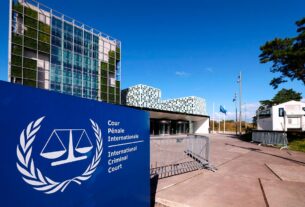In the early hours of Wednesday, tension between Iran and Israel escalated dramatically as Iran fired hypersonic missiles at Tel Aviv — a direct response to days of Israeli airstrikes and a stark warning issued by former U.S. President Donald Trump demanding Iran’s “unconditional surrender.”
The skies over both nations have been anything but peaceful. Israeli warplanes struck targets in Tehran before dawn, hitting areas believed to house weapons manufacturing sites and centrifuge facilities. Hours later, Iran retaliated, launching what it called the 11th wave of “Operation Honest Promise 3,” deploying its state-of-the-art Fattah-1 hypersonic missiles toward Israel.
Iran’s Islamic Revolutionary Guard Corps claimed the missiles were “repeatedly shaking the shelters” in Tel Aviv, signaling that the capital was now within striking range. They also launched a swarm of drones, some of which were intercepted over the Dead Sea by Israeli defenses.
With each side trading increasingly lethal blows, ordinary citizens are bearing the brunt. In Tel Aviv, people have taken shelter in underground parking lots, transforming shopping malls into makeshift bunkers. In Tehran, residents queued outside bakeries and fuel stations, panic-buying supplies as rumors of more attacks spread. Many fled the capital altogether.
International leaders are working furiously behind the scenes to calm the storm. Egyptian Foreign Minister Badr Abdelatty made calls to both Iranian and U.S. counterparts, pleading for diplomacy. Meanwhile, Trump cut his G7 summit visit short, returning to Washington where he met his National Security Council to discuss next steps. Though he has not officially committed to intervention, the deployment of the USS Nimitz aircraft carrier to the region has stoked fears of broader conflict.
Trump’s rhetoric, however, is anything but calming. In a statement on Truth Social, he threatened that the U.S. knows the whereabouts of Iran’s supreme leader and could act “at any time,” though he emphasized, “not for now.”
On both sides, the human toll is growing. Israel claims it has eliminated senior Iranian military figures, while Tehran says over 220 people, including scientists and civilians, have died since the conflict began last Friday. Foreign nationals are also caught in the crossfire. Over 700 foreigners in Iran have already fled to neighboring countries like Azerbaijan and Armenia, as embassies—like the U.S. in Jerusalem—temporarily shut their doors.
Adding to the chaos, a cyberattack on Tuesday reportedly crippled Iran’s Sepah Bank, worsening the nation’s financial anxiety.
At the heart of the fight lies a decades-old rivalry and a nuclear standoff. Israel insists its campaign is to prevent Iran from obtaining nuclear weapons—an allegation Iran continues to deny. Yet, reports of explosions near Iran’s nuclear facilities in Isfahan, and damage to underground enrichment halls in Natanz, raise global alarm.
World leaders are calling for calm. French President Emmanuel Macron believes Trump has a critical role to play in reviving diplomacy. Others, like Turkish President Erdogan, accuse Israel’s Netanyahu of endangering the region, while China warns the U.S. not to fuel the flames.
As air raid sirens wail and lives are disrupted, it’s the everyday families—mothers, fathers, children—hiding in basements and bomb shelters who are paying the highest price. The world watches, hoping that cooler heads prevail before this conflict spirals even further out of control.





